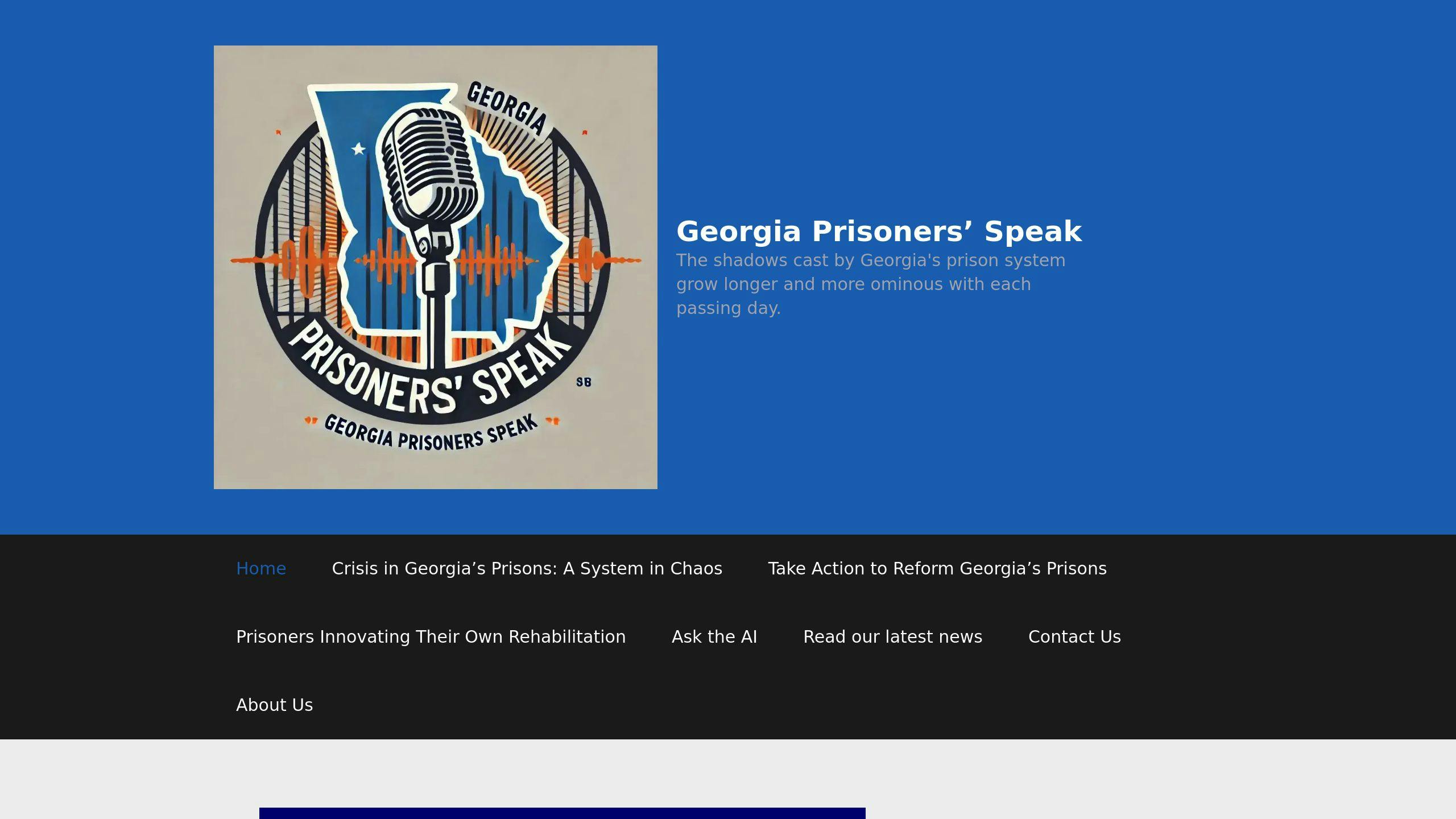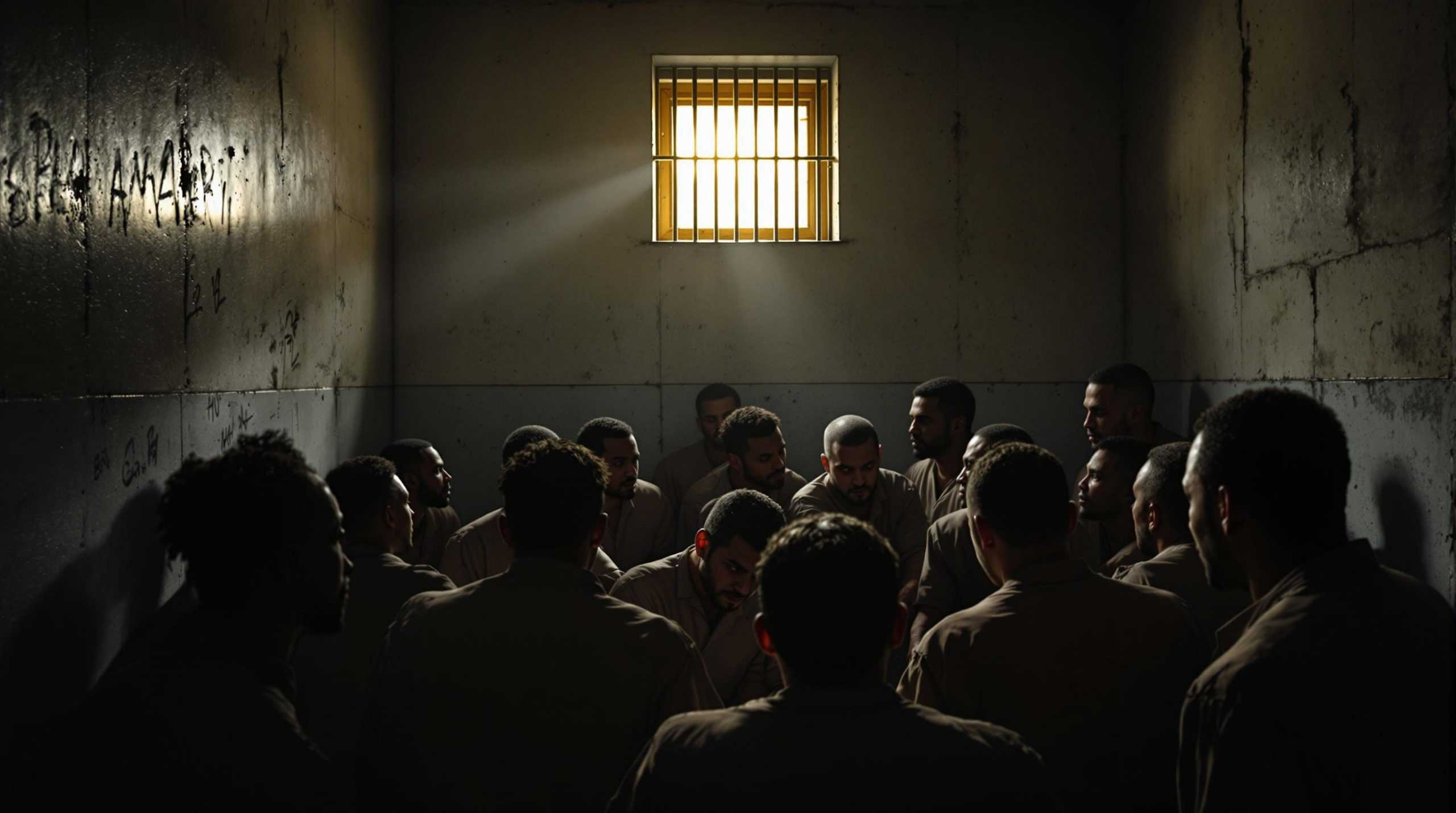Georgia’s prisons are in crisis, violating the 8th Amendment’s protections against cruel and unusual punishment. A recent DOJ investigation reveals alarming issues, including extreme violence, understaffing, and neglect of vulnerable inmates. Between 2018 and 2023, Georgia prisons reported 142 homicides, with a homicide rate three times the national average. In 2022 alone, 635 sexual abuse allegations were filed. Severe staffing shortages – vacancy rates exceeding 60% – have fueled gang activity and corruption, leaving inmates unprotected.
Key Findings:
- Homicides: 35 in 2023; 142 since 2018.
- Sexual Abuse Allegations: 635 in 2022.
- Staffing Crisis: Over 70% of positions unfilled at some facilities.
- Gang Activity: Thrives due to weak oversight.
- LGBTQ+ Inmate Risks: High rates of sexual assault and inadequate housing policies.
DOJ’s Proposed Solutions:
- Immediate recruitment to address staffing shortages.
- Enhanced video surveillance and contraband detection.
- Revised housing and classification systems for vulnerable inmates.
- Long-term focus on rehabilitation, anti-gang strategies, and accountability.
Georgia’s prison system urgently needs reform to protect lives, uphold constitutional rights, and ensure public safety.
U.S. Justice Department to investigate Georgia prison violence
DOJ Report: The State of Georgia Prisons
A Department of Justice investigation has uncovered systemic issues in Georgia’s prison system, revealing conditions that violate basic human rights and constitutional protections. These findings point to a direct breach of the Eighth Amendment, which prohibits cruel and unusual punishment.
Violence and Gang Problems in Georgia Prisons
Violence in Georgia’s prisons has escalated to alarming levels. In December 2023 alone, five homicides were reported across four separate facilities [2]. At Smith State Prison, an inmate was discovered dead in his cell in April 2023 after a violent attack [2].
Gangs have taken advantage of weak oversight and understaffing to expand their influence. They recruit vulnerable inmates, enforce control through violence, and smuggle contraband, creating a chaotic and dangerous environment. These issues stem directly from mismanagement and a lack of adequate staffing.
"Individuals incarcerated by the Georgia Department of Corrections should not be subjected to life-threatening violence and other forms of severe deprivation while serving their prison terms." – U.S. Attorney Ryan Buchanan for the Northern District of Georgia [2]
The most vulnerable inmates often bear the brunt of this violence, further exposing the system’s failures.
Neglecting Vulnerable Inmates
LGBTQ+ inmates, especially transgender women, face extreme risks. Hundreds of sexual abuse allegations are filed each year [1][2]. Many transgender women are placed in facilities with male inmates, significantly increasing their vulnerability to sexual assault [1][2].
Staffing shortages compound these issues, with vacancy rates exceeding 60% [1]. This severe understaffing undermines the ability to maintain safety and order, allowing constitutional violations and abuses of human dignity to persist [2][3].
These findings underscore the urgent need for systemic reforms to address the deep-rooted problems of violence and neglect in Georgia’s prisons.
Why Georgia Prisons Are Failing to Protect Inmates
Georgia’s prison system struggles to ensure inmate safety due to deep-rooted problems that violate the Eighth Amendment.
Staff Shortages and Corruption
By August 2023, over 70% of correctional officer positions were unfilled at eight facilities [4]. This severe understaffing creates dangerous security lapses. For example, at Smith State Prison, an inmate’s strangled body went unnoticed for two days [2]. These gaps in oversight put lives at risk and breach constitutional protections.
Adding to the crisis, an investigation uncovered 350 corrupt staff members, including guards and officers, who were involved in violent and criminal activities [4]. Corruption not only fuels crime but also undermines trust in the system, intensifying the already dire conditions.
The lack of staffing and accountability is further worsened by poor housing policies that leave inmates vulnerable to violence.
Mismanagement of Inmate Housing and Classification
Beyond staffing issues, improper housing and classification practices heighten safety risks. Vulnerable inmates are often left unprotected due to ineffective classification systems.
Reports of sexual abuse remain alarmingly high, as seen in recent data:
| Year | Sexual Abuse Allegations |
|---|---|
| 2020 | 702 |
| 2021 | 639 |
| 2022 | 635 |
These numbers reflect ongoing failures to safeguard inmates. Gang activity is another major issue, with gang members freely recruiting younger and more vulnerable inmates from the general population [2][3].
One particularly shocking case occurred at Phillips State Prison in 2020, where an inmate was tortured for four days [2]. Incidents like this highlight how poor classification and housing policies allow extreme violence to thrive, violating inmates’ constitutional rights.
sbb-itb-7858f51
Solutions to Fix Georgia’s Prison System
The Department of Justice (DOJ) has proposed a two-part plan to tackle the deep-rooted issues in Georgia’s prison system. These measures aim to address the violence, neglect, and mismanagement that have plagued the system for years.
Immediate Actions Recommended by the DOJ
One of the most urgent priorities is solving the severe staffing shortage. The DOJ suggests launching an aggressive recruitment drive with competitive pay and benefits [1][2]. Other immediate steps include:
- Enhanced video surveillance to monitor activities and improve safety.
- Stronger contraband detection methods to limit illegal items within facilities.
- Better inmate housing procedures to protect vulnerable individuals.
- Revised classification systems to reduce risks for at-risk inmates.
These measures are designed to stabilize the system and address immediate safety concerns.
Long-Term Goals for a Safer Prison System
For lasting change, the DOJ emphasizes the need for a complete overhaul of prison operations and a focus on rehabilitation and accountability. Drawing inspiration from states like New Jersey and Colorado, which have successfully reduced violence and recidivism, the DOJ recommends adopting evidence-based rehabilitation programs [1].
Key long-term initiatives include:
- Expanding mental health and support services for inmates.
- Introducing anti-gang intervention strategies.
- Establishing transparent oversight to ensure accountability.
- Improving staff training and development programs.
- Upgrading security systems and infrastructure to modern standards.
Advocacy groups such as Georgia Prisoners’ Speak (GPS) are crucial in pushing these reforms forward. By holding stakeholders accountable and amplifying the voices of those impacted, they ensure transparency and meaningful change.
With Georgia’s prison homicide rate standing at three times the national average [1][2], these reforms are about more than just policy – they are about protecting lives and upholding constitutional rights. While these changes require significant effort and resources, the consequences of doing nothing are far more severe.
The Role of Advocacy and Public Support in Prison Reform
Improving prison conditions in Georgia demands ongoing advocacy and active community involvement. With prisons facing severe understaffing and high levels of violence, public backing is essential to drive meaningful changes and hold authorities accountable.
Georgia Prisoners’ Speak (GPS): A Voice for Reform

GPS is a critical force in exposing systemic failures and advocating for change. By amplifying the voices of incarcerated individuals and documenting violations of 8th Amendment protections, GPS shines a light on unconstitutional practices. Their work has not only increased public awareness but also strengthened the Department of Justice’s findings, ensuring these issues receive the attention they deserve.
GPS supports families and advocates by:
- Documenting violations that breach constitutional rights
- Connecting stakeholders with government officials
- Providing resources to educate the public on prison reform
Why Prison Reform Matters to Everyone
Fixing Georgia’s prison system impacts more than just those behind bars. When facilities are run constitutionally and prioritize rehabilitation, the effects ripple out to entire communities. Right now, staffing shortages – exceeding 70% at eight facilities [4] – jeopardize safety for both inmates and the public.
Key benefits of reform include:
- Reduced violence, which helps curb gang activity both inside and outside prisons
- Adequate staffing, enabling proper supervision and rehabilitation efforts
- Safer environments, which lower recidivism and support reintegration into society
- Improved mental health care, easing the burden on community services
Advocacy groups like GPS are essential in maintaining transparency and demanding accountability, but they can’t do it alone. Public involvement keeps these issues in the spotlight, ensuring policymakers take action. The push for reform is more than a legal or moral obligation – it’s a step toward safer, stronger communities.
Conclusion: The Need for Urgent Action in Georgia Prisons
Advocacy groups like GPS highlight the pressing need for sweeping changes, but real progress depends on prompt action across all levels. Georgia’s prison system is grappling with systemic failures that violate the 8th Amendment’s ban on cruel and unusual punishment, creating a constitutional crisis that demands immediate attention.
To address these issues, a comprehensive approach is required:
- Address chronic understaffing and improve how inmates are classified.
- Strengthen policies to better protect vulnerable inmates.
- Introduce measures to reduce gang violence and enforce accountability.
Severe understaffing undermines both safety and daily operations. These lapses go beyond administrative errors – they represent violations of constitutional rights that cannot be ignored.
Advocacy groups and public engagement play a crucial role in pressuring authorities to act and ensuring these necessary reforms are carried out. Efforts like those led by GPS are essential for upholding human rights and safeguarding public safety. Fixing Georgia’s prison system will require ongoing public involvement and a steadfast commitment to change.
This isn’t just about meeting legal obligations – it’s about restoring dignity, justice, and security for everyone involved.
